Patton (1970)
“They’ll lose their fear of the Germans; I hope to God they’ll never lose their fear of me.”
|
Synopsis: |
|
Genres, Themes, Actors, and Directors:
Review: Peary asserts that “Patton was appealingly presented as a nonconformist within the military, a poet and historian who often speaks his mind against authority figures” — and he points out that “any time Patton says something that might have raised the ire of college-age viewers, [co-screenwriters Francis Ford] Coppola and Edmund H. North wisely have Karl Malden’s Omar Bradley counter with a more reasoned statement, as if he and not Patton represented the thinking of the filmmakers.” Peary concedes that “Patton contains a great performance by Scott and holds up fairly well as a biography and as a war movie” — but he points out that:
He asserts it’s “also annoying… that every time Coppola and North want us to know what a military genius Patton is, we cut to German headquarters, where we hear their top brass exalting him.” I’m not as irritated by the structure of the film as Peary is, given that it shows the actual — albeit inevitably fictionalized — arc of this real-life general’s career, which likely did flow somewhat like this; and it feels relevant to highlight how highly German enemies thought of him given his rocky reception back at home. In terms of Scott, Peary points out that his “tour-de-force performance… overwhelmed everyone in 1970” and “his blunt, imposing opening speech in front of a huge American flag became an instant classic — he could have stopped right then and won the Oscar.” He adds, “It leads me to believe Scott would have been even more effective in a one-man show about Patton, because the other characters and repetitive scenes and conversations got in the actor’s way. Still, for giving one of the cinema’s most forceful and memorable characterizations of an historical figure, he certainly was worthy of the award the Academy wanted to give him.” However, Peary himself gives the Alternate Oscar to Jack Nicholson in Five Easy Pieces (1970), which he also names as the Best Picture of the Year. Note: An interesting bit of trivia is that “this was one of the few Oscar-nominated major films without a single female actor listed in the credits. There are only 3 lines of female dialogue in the film (during Patton’s PR appearances in England.)” Ouch. Notable Performances, Qualities, and Moments: Must See? Categories
(Listed in 1001 Movies You Must See Before You Die) Links: |
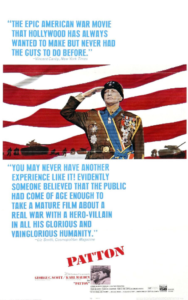
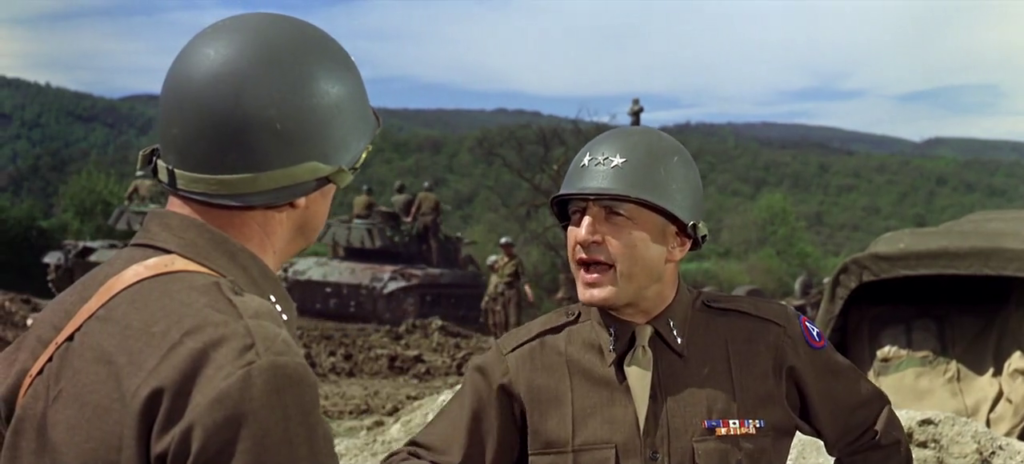
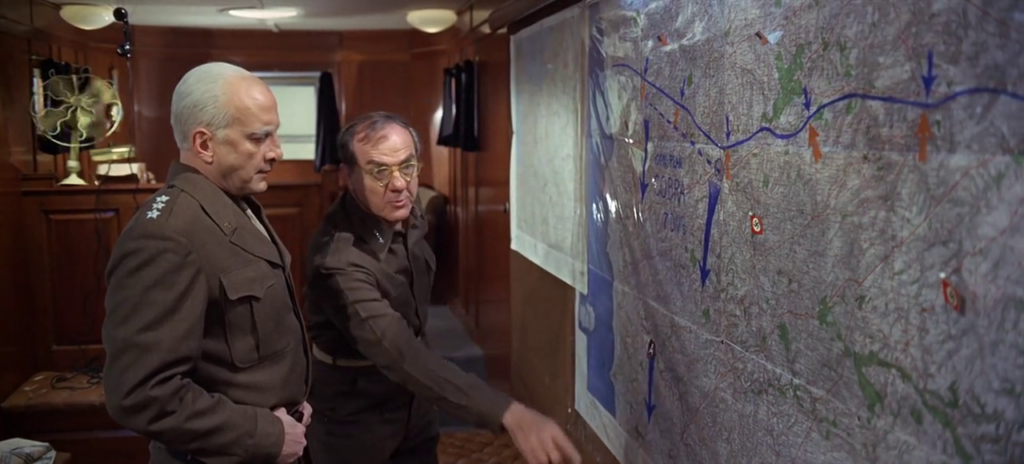
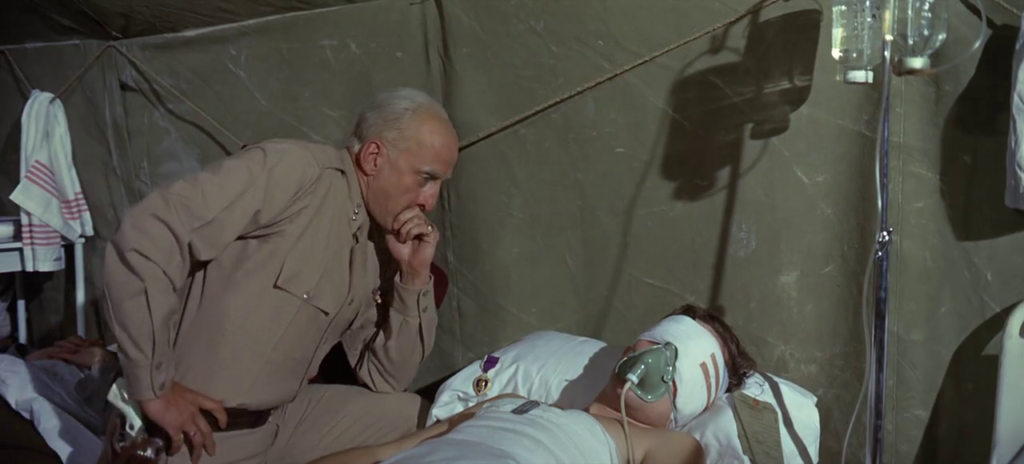
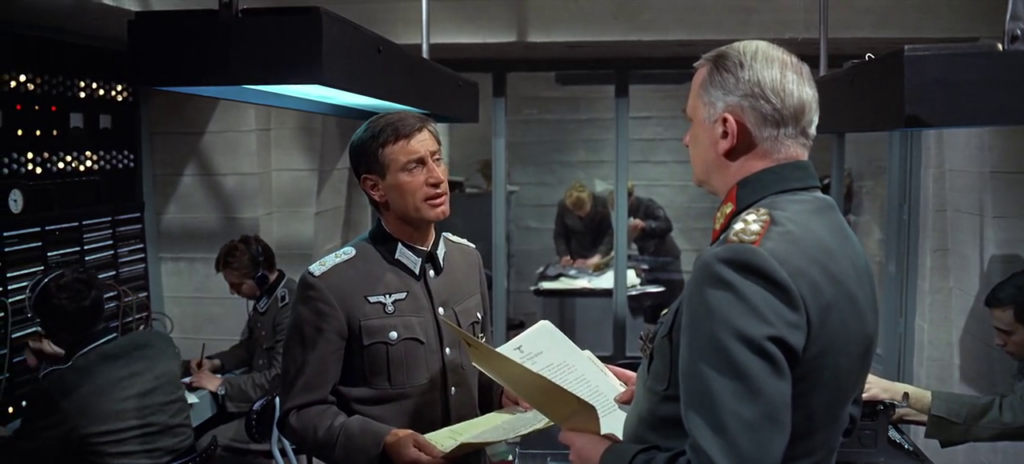
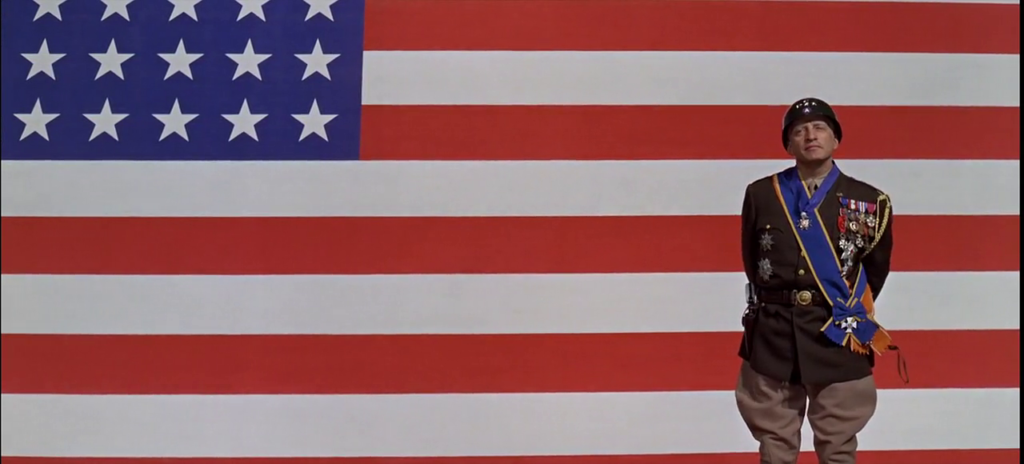
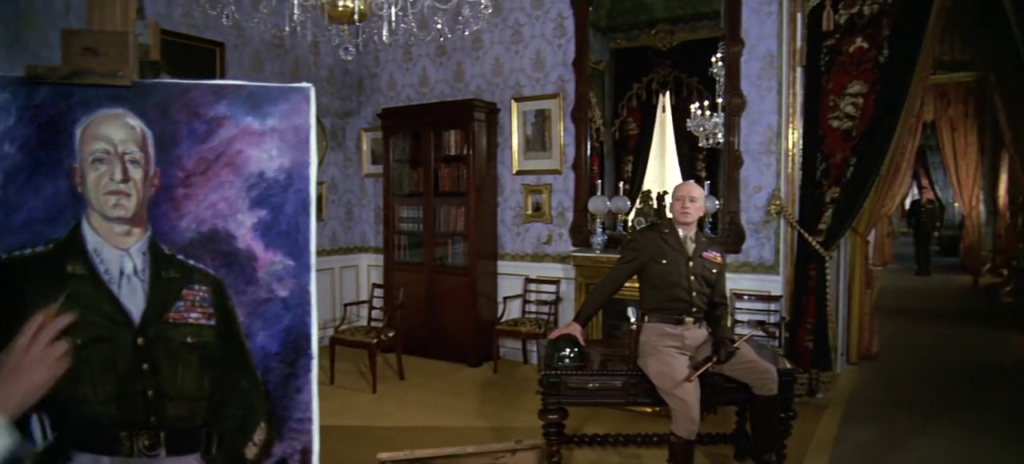
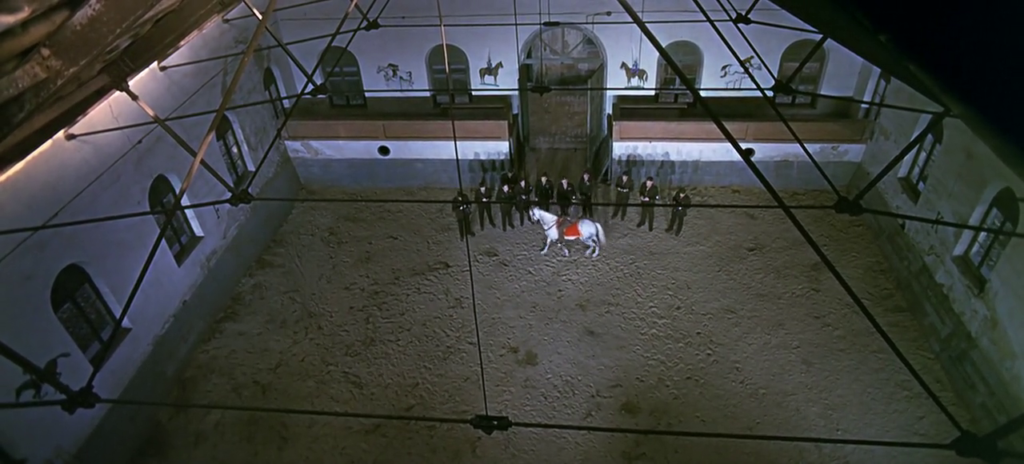
3 thoughts on “Patton (1970)”
Rewatch (6/15/19). A once-must, for Scott’s performance. As posted in ‘Film Junkie’ (fb):
“Now, I want you to remember that no bastard ever won a war by dying for his country. He won it by making the other poor dumb bastard die for *his* country.”
‘Patton’ [blu-ray]: I hadn’t seen this since it was released when I was a teen. My main interest in revisiting is connected to what we now have available to us with DVD extras (i.e., anything connected to backstory). I do have an interest in WWII stories but I wanted to see what the extras had to say about Patton himself – and how that info might have differed from the film.
One doc extra interviews many people either connected with the film or who knew Patton and most people concur about the film’s overall accuracy. However, there’s also a lengthy extra about Patton’s ‘Ghost Corps’ (the 94th division) – a group (many interviewed) who Patton abandoned (leaving them with little assistance or protection) while he forged ahead for the Battle of the Bulge.
Among these men, there are those who hated him and those who – in spite of what they went through – refer to him as a great commander. The ‘Ghost Corps’ – although they suffered the usual casualties – overcame their odds and eventually reached Patton on their own soon after.
The consensus seems to remain that, for all those who considered Patton a madman, there were just as many who saw him as a military genius – someone capable of achieving the kind of victory over the Nazis that others could not. (George C. Scott did not admire Patton in the least – but… it seems that a good role is too good to turn down. He did, however, refuse his Oscar.)
Alas, the DVD also gives us the info that Nixon loved the film – and, bizarrely, took it as inspiration for ordering the bombing of Cambodia.
A classic film, highly regarded although only the main American generals (Patton, Bradley) and a couple of characters around them are well drawn (Montgomery is written and played as a cartoon).
Definitely a must see for FFs.